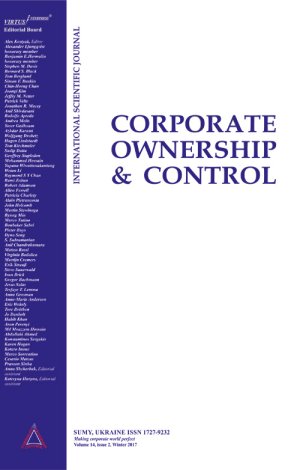
-
 Journal menu
Journal menu

- General information
- Editorial Board and External Reviewers
- Journal Policies
- Publication Ethics and Malpractice Statement
- Instructions for authors
- Paper reviewing
- Article processing charge
- Feedback from stakeholders
- Journal’s Open Access statement
- Order hard copies of the journal
- 50 most cited papers in the journal
A Critical Evaluation of Event Study Approach using M&A Events in the Indian Banking Industry
Download This ArticleAbstract
The present study seeks to critically evaluate the most extensively employed technique – event study methodology, employed to capture the returns generated from M&A events on the wealth status of shareholders. Notwithstanding the popularity of the technique, authors in this paper argue that conceptual bases on which the methodology is founded is flawed. In the light of the extensive limitations attributable to event study methodology, there exists an urgent need to suggest improvement in the conceptual framework of the traditional method capable of lending application to capture the wealth effects of M&A events. The authors believe that application of such a modified approach will be much more salvageable as the results derived therefrom will command greater credibility as well as reliability. In order to highlight the inherent limitation of the event study approach, the authors have used the sample of Indian Banking M&A events retrieved from the M&A data available at etintelligence.com . Given the conceptual flaws of the event study approach, the authors argue that researchers must exercise great caution while commenting on the t-statistic observed for CAR (Cumulative Abnormal Returns) values as the statistical insignificance could be arising more out of the conceptual deficiency of the event study approach than pointing towards the neutral impact of an M&A event on the wealth status of the shareholders.
Keywords: Event study methodology; wealth status of shareholders; statistical reliability
How to cite this paper: Rao, U. (2016). A critical evaluation of event study approach using M&A events in the Indian banking industry. Corporate Ownership & Control, 13(3-1), 266-272. https://doi.org/10.22495/cocv13i3c1p13

















